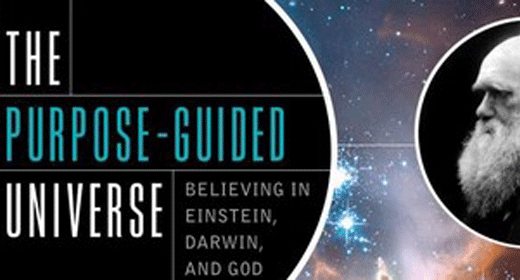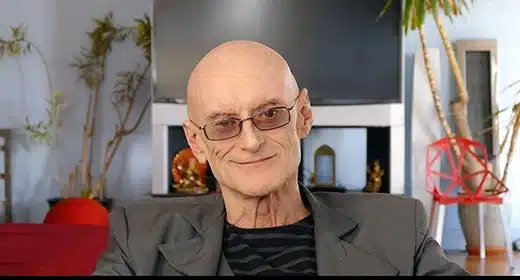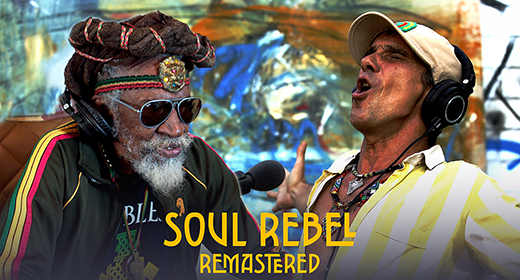Donna Quesada: So, “integral” is what we’re aiming for, because that’s when wholeness is revealed…
Ken Wilber: That’s right. When you’re at the mythic level, all you think is real is the previous material level… just matter, and then the heavenly gods and goddesses. And so that’s… it was during our evolutionary period when we were moving through that mythic level of development that almost all of the world’s great religions, Hinduism, Buddhism, Taoism, Christianity, Judaism, Islam, all of those were written in their major forms, like the Bible itself was written about two to 3000 years BCE… That meant that we had been in a mythic, generalized realm since 10,000 BCE.
We had started to pass around traditional stories and spoken word beliefs and so on, and those eventually, when we learned writing around 5000 BC, started to write them down and they were all mythic literal forms of stuff that was written, along with an occasional, rational statement. But the next paragraph would begin… “And so God gave his one and only biological son to a virgin, and Jesus Christ was born.”
Well, some of that is rational, most of that is “Mythic-literal.” If you think of… and that was understood by everybody. Remember Joseph actually believed what Mary told him about why she was pregnant. She said, “Okay, yes, I did have sexual knowledge with another person, but don’t worry, they’re not from this planet.” And he goes, “Oh, okay, I’ll buy that, I’m that dumb, I’ll buy that.”
That’s how we get religion. And that’s why when religion versus science… religion was born at the Mythic level and the Concrete-operation level, and then science was born at the Rational level or the Formal-operational thought operating on thought level, and the reason there was such a big battle between religious, Mythic-religious and Rational-science is that rationality looked at myth and said, “It’s not real, it’s just stupid… all of you people are just nuts.”
Donna: The scientific knowledge, or the spiritual intelligence by itself isn’t enough either, because as you also explained, then it starts to reduce down to nothing but theology or philosophy, so you really need both, is that right?
Ken: Yes. Well, particularly spiritual intelligence means it can otherwise be a fairly rational intelligence, but it is an intelligence. It’s made of linear words and thoughts. Even mythic thinking has stories that it tells, and those are thought processes. Spiritual intelligence is when the thought processes think about an ultimate reality, and when they think about that, even if they’re at the mythic stage, they’re going to use their own mythic intelligence and they’ll think mythic thoughts. Those are a large part of spiritual philosophy and spiritual thinking, but those have more of an amount of actual rational, logical thinking in them. They’re using spiritual intelligence, but they’re also using some rational, formal, operational thought as well, but what’s predominantly believed in core teachings of almost all the world’s religions, including Hinduism and Buddhism, have a mythic, literal background, and that won’t really disappear until the emergence of Formal-operational thinking.
Donna: Fascinating. Ken, is that even in the scientific domain now, and perhaps you can comment about this… even back to one of the books that I always really enjoyed was Fritjof Capra’s Tao of physics… maybe you’re familiar with it, where he talks about physicists…
Ken: What book was this again?
Donna: The Tao of physics.
Ken: Sure.
Donna: He’s talking about how even in the domain of quantum physics, they’re finding really what Buddha said 2500 years ago, that we are all one and there is interconnectedness and this unity about reality that we can’t quite put our finger on, so even in the rational domain, it’s pointing toward unity.
Ken: Well, except there’s a real problem with the book, The Tao of Physics, and that is that it uses scientific methodologies which are like laboratory experiments and so on… and those are all indeed of the rational plane and… if the Tao of Physics was correct, virtually every professional physicist in the world today would have had a great big spiritual unity experience because he’s learning quantum mechanics, and that’s the same as a great spiritual unity. It’s nothing vaguely even like it. The fact that what it’s describing is, if you take the Schrodinger wave equation, which is a mathematical equation, and you don’t have to meditate or practice awareness shifting to understand it, you just have to understand mathematics.
Donna: Equations?
Ken: Yeah. You take the Schrodinger wave equation and you square it, it’ll give you the location in physical units, like so many units north, so many units east, so many units west of an electron, which otherwise appears random. That’s why quantum mechanics confuses so many people… It’s that logic just doesn’t work well in a quantum domain. It’s also why the quantum domain has probably been the most misused science in relation to mystical realities that you can find, because everybody who starts reading about quantum reality starts… “Oh, wow, that’s so mystical, look! This oneness occurs and Wow!” But you don’t experience a oneness when you realize that quantum reality, you have no idea what it is, and nor does any physicist who makes it the soul study, or we would have a world full of enlightened physicists, but we don’t have anything like that at all.e
Donna: So there’s a big chunk between theory and experience that has to be gapped somehow, or bridged, I should say.
Ken: That’s right.
Donna: And there are very few examples of that, I think.
Ken: That’s right. Just to make sure of this point, because I wrote, at the time that Capra wrote his book… I wrote publicly published criticisms of it, and in order to prove my position, I went back to all of the original founders of quantum mechanics, Schrodinger, Heisenberg, Bohr, De Broglie, Eddington, and I got all of their writings on physics and spirituality, and I took the best excerpts out of all of them and published them as an anthology in a book called Quantum Questions.
Of the 13 pioneering physicists that I included, not one of them believed that quantum mechanics told us anything about spirituality. For example, Eddington said, “For my part, I’m wholly opposed to such attempts because they’re very much confusing spiritual experience with spiritual intelligence”. If you’re just thinking, using your typical ordinary mind to think about an absolute reality like God or goddess or Brahman or Buddha, then that is a spiritual intelligence, it’s not a spiritual experience. You still don’t have a first person direct immediate experience of this unified wholeness that you’re jabbering on about. It’s unfortunate that because quantum mechanics is so weird in its essence, it’s easy to take it and twist it into science proves mysticism.
Donna: Yeah.
Ken: That was the downside of the Tao of Physics book. It really did a lot of damage in this area. Fritz and I have talked about this a lot, and he sort of is loosening up on it a little bit, but it’s taking him a long time.
Donna: I would love to see the two of you in conversation.
Ken: Yeah. It’s a very interesting conversation.
Donna: I’m thinking about this “bridging the gap”… most world religions today, with the exception of perhaps Buddhism, emphasize belief, and we have only belief as our source of practice, and I don’t know if I would even call that a “practice.” We have a lack of the spiritual intelligence we’re talking about, and so, how do we bridge that gap globally so that we can all get into this place of wholeness?
Ken: Right. The reason that typical religion… and I’ll use the word “religion” to talk about Mythic-religion because that’s what you’re talking about when you ask this question. The reason that such emphasis is put on belief is that all of those beliefs are myths, and so somebody sort of inherently knows that they’re not truthful, they’re not right, they’re not correct. They’re myths. They’re Santa Claus and the tooth fairy and Zeus and Apollo, and so on.
You must believe in them or you’re going to go to hell forever and you’re not going to get into heaven, and so they make this huge weight upon believing in belief, and they call that “faith.” They don’t have any proof that the belief is real, but they have faith that it’s real. They have faith in Santa Claus or faith in tooth fairy, or faith in Aphrodite or faith in Apollo.
That’s a requirement for that religion to be successful… is that people have faith in what it’s saying, and that’s the main reason, is because they need faith in order to believe the ridiculous stories that five year olds tell themselves about reality. That’s a real problem, so how do we get over that and get from a spiritual intelligence to a spiritual experience? Well, this is where all of the world’s, literally, with no exceptions… all the world’s practices of meditation aim at stopping typical thought, and you just get beyond even thinking.
The state of consciousness, is called no mind or no thought. The Zen doctrine of no thought is very well known. For that, they use things like a Zen koan. All of the koans have one thing in common, they don’t make any sense to rationality, but there’s a real answer to them. They have real answers, and you have to give the answer.
You’re given a question that can’t be solved with rationality, and you’re told, “answer this question,” and you must do that or you’re not going to pass Zen. Examples of Zen koans are, “What’s the sound of one hand clapping?” It’s a very famous Zen koan. That is basically the process that you use.
And we have plenty of christian mystics that give meditations that you can do to help get you above or beyond typical thought. Meister Eckhart is a genius at this type of practice. By the way, you have to be very careful if you were a christian mystic, because the only one person according to the myth, was the son of God, and therefore, only that one person could have a true oneness with God experience. If you were christian mystic and you would talk about “I’m one, I and the father are one,” or something like that… the inquisition would very likely kill you. It would certainly torture you or make things very unpleasant for a long time, and so you had to be very careful how you chose your wording.
St John of the cross, who was a brilliant christian mystic, and his student, Saint Teresa of Avila, who was equally brilliant… they both managed to write a fair amount about the highest stage of consciousness development. The way St Teresa would put it, is she would talk you through, she had sort of basically non major stages of meditative development, and she would walk you through the first eight and very explicitly saying, “You must experience this and you must see this and you must feel one with this,” and all of that, and then stage nine, which would be a unity with spirit or God, she would say of that stage, “Words will not suffice to cover that stage, so I just won’t say anything about that, but if you get up to stage eight, you’ll start to see what to do, so good luck.”
St John of the cross essentially did the same thing as did Meister Eckart, although he stepped over the line more than most christian mystics, and so, interestingly, the Vatican, the head of the christian mythology, condemned not Eckhart, but his thesis, his writing, condemned them to hell. Apparently, now that Eckhart is dead and supposedly he’s gone to heaven, but his ideas are all burning in hell, so I don’t know what he’s thinking.
Donna: The powers that be don’t want us enlightened.
Ken: Right.
Donna: For the very simple question, Why does it matter?… what would you say to someone watching, saying, “What is all this talk about enlightenment? How will it change the world? What will it do for my life?” Can you bring it way down like that for a moment?
Ken: Sure. Basically what it does is, well, perhaps it was put best by Buddha, although all world religions have variations on this theme. According to Gautama Buddha and his Four Noble Truths, Noble Truth one is: Life as we live it is Dukkha. And Dukkha means suffering. It’s pain, it’s hell. And the cause of Dukkha is grasping, or seeking or egoic striving. Then the Second Noble Truth is, there is a way to end suffering. The Third Noble Truth is, the way you end suffering is… you end grasping. You end thought based on the relative world, which is our first kind of consciousness, we have…
Donna: Nirvana, just let go.
Ken: That’s right. The Fourth Noble Truth is, there is a way to end grasping desire, thought, and this is called the Eightfold Path. It’s basically a description of eight practices that you can do that will get you beyond thinking. When you get beyond thinking and you have what Zen Buddhism calls a Satori, or a real experience of this absolute oneness with everything that ends that form of thinking, that form of ego, that form of thought, and therefore that form of suffering. To live without an enlightenment is to live inexorably in some sort of suffering condition. Most people know that anyway… they know that they’re going to hurt at some point during their lifetime, unless they’ve truly transcended the self that’s going to get hurt. When you transcend that self, there’s no more hurt because there’s nothing to hurt.
Read and Watch 2nd Ken Wilber Interview Pt 1 Here: 2nd Ken Wilber Interview Pt 1 – A Spiritual Experience Is A Direct First-Person Experiential Awareness
Read and Watch 2nd Ken Wilber Interview Pt 3 Here : 2nd Ken Wilber Interview Pt 3 – What Good Is Awakening?
Read and Watch 2nd Ken Wilber Interview Pt 4 Here: 2nd Awaken Interview with Ken Wilber Pt 4 -The Growing Up Experience
Read and Watch 2nd Ken Wilber Interview Pt 5 Here: 2nd Interview withKen Wilber Pt 5 – The Importance of the Stages of Development
Source: AWAKEN
Here is a link to our first interview with Ken Wilber: Read and Watch Pt 1 Here: Awaken Interviews Ken Wilber Pt 1– Every Sentient Being Including a Dog, Has a Buddha Nature










































